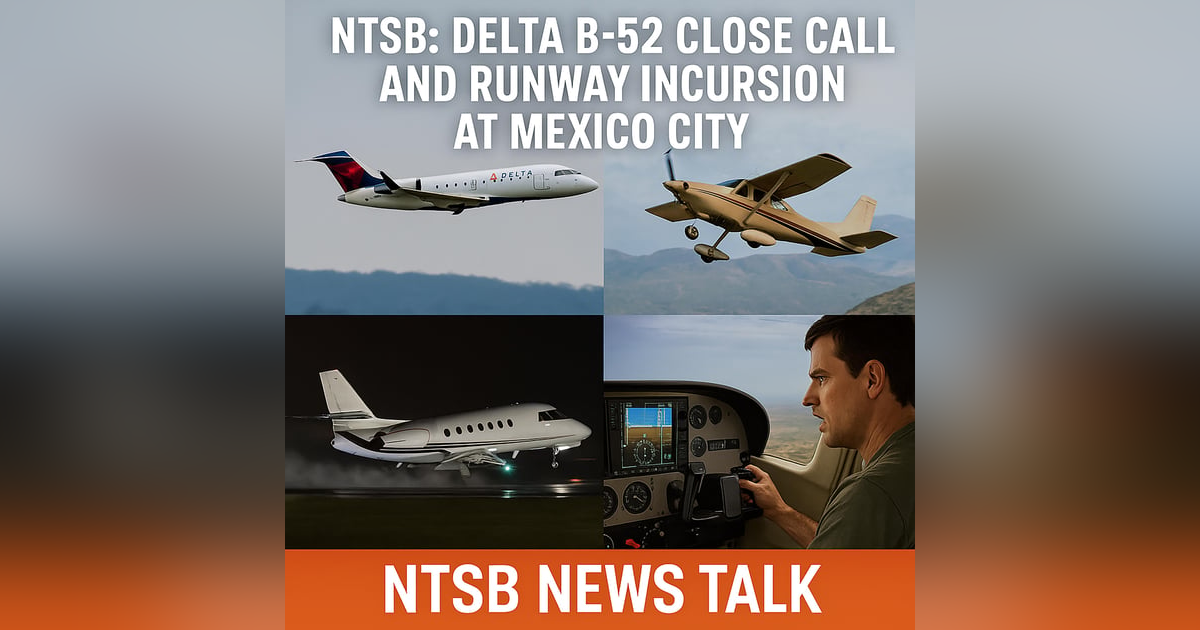NTSB: Delta B-52 Close Call and Runway Incursion at Mexico City

Max and Rob bring listeners a packed episode of aviation safety lessons anchored by the NTSB. They begin with the Board’s announcement of a three-day investigative hearing into the Reagan National midair between a regional jet and a U.S. Army helicopter. Rob dives into a dramatic close call in North Dakota, where a Delta Regional Jet on final narrowly avoided a B-52 bomber crossing its flight path near Minot. The incident exposes communication gaps, contract tower limitations, and the critical need for radar and coordination between military and civilian traffic.
In Mexico City, a Delta A320 rejected a high-speed takeoff to avoid an AeroMexico E-190 landing over the top of it on the same runway. The event raises red flags about ATC language use, as Spanish transmissions prevented the Delta crew from maintaining situational awareness. Max explores the Hollister RV-8/Cirrus collision, highlighting how a relocated runway threshold and lack of radio calls can set the stage for disaster.
AOPA's Sweepstakes Aviat A-1C-200 Husky was damaged in a landing incident, in which the pilot's left foot was misplaced an not on the rudder pedal.
A Murphy Aircraft Manufacturing Limited Moose airplane, N250MK, was destroyed when it was involved in a takeoff accident near Montrose, CO. According to the Preliminary NTSB report, two pilots on board were killed.
The Falcon 10 runway overrun in Panama City offers a textbook example of checklist discipline when thrust reversers failed due to switches left in the wrong position, turning deceleration into forward thrust. The AOPA Sweepstakes Husky mishap adds another cautionary tale about cockpit discipline and distractions.
The episode’s most personal moment comes when Rob shares his experience flying rusty in a G1000-equipped Cessna 182. Fatigue, cockpit visibility issues, haze, and a failed trim system combined to erode his performance and highlight how ego can mask risk. Max underscores the I’M SAFE checklist—illness, medications, stress, alcohol, fatigue, emotion—and how self-awareness can prevent tragedies. Together, they emphasize that open discussion and honest reflection are vital to improving safety and preventing accidents.
Check out our other Aviation News Talk Network podcasts: